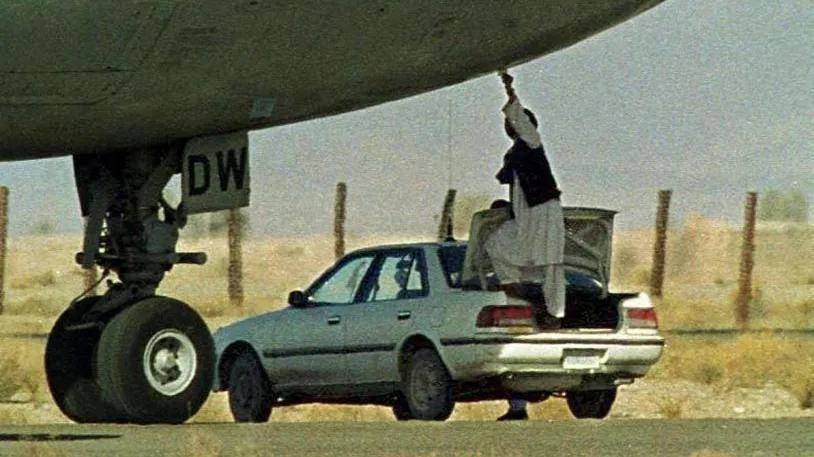03/09/2024
03/09/2024

NEW DELHI, India, Sept 3: A new web series detailing the 1999 hijacking of an Indian passenger plane has sparked controversy in India due to its portrayal of the hijackers. The series, titled "IC 814: The Kandahar Hijack," is directed by Anubhav Sinha and available on Netflix. It dramatizes the events surrounding the hijacking of a Kathmandu-Delhi flight, which was diverted to Taliban-ruled Kandahar. The hijackers demanded the release of militants imprisoned in India.
The negotiations, which lasted eight days, culminated in the Indian government agreeing to release three militants, including Masood Azhar, in exchange for the passengers’ safety. Azhar, who later founded the Jaish-e-Mohammad group, is blamed for several attacks in India and is designated as a terrorist by the United Nations.
The decision to release Azhar and the other militants has remained a point of contention in India, with frequent criticism from opposition parties directed at the Bharatiya Janata Party (BJP), which was in power at the time.
The controversy surrounding the series centers on its depiction of the hijackers. The six-episode mini-series is based on the book "Flight Into Fear: The Captain's Story" by Devi Sharan and Srinjoy Chowdhury. Released last week, the series portrays the hijackers as using common Hindu names such as Bhola and Shankar. This has led to criticism from some social media users who argue that these names are misleading and suggest that Hindus were involved in the hijacking.
BJP leader Amit Malviya criticized the series, accusing the filmmakers of using "non-Muslim" aliases to mislead viewers into thinking Hindus were responsible. Additionally, a Hindu right-wing organization has filed a case in a Delhi court seeking a ban on the series, accusing the filmmakers of distorting historical facts.
In response to the uproar, several Indian media outlets reported that the federal government has met with a senior Netflix executive regarding the matter. However, neither Netflix nor India’s Information and Broadcasting Ministry has commented on the issue.
Defenders of the series argue that it is factually accurate. A statement from India’s Home Ministry in 2000 confirmed that the hijackers used aliases such as Bhola and Shankar during the crisis. This was corroborated by survivors and journalists who reported on the incident.
Kollattu Ravikumar, a hijacking survivor, confirmed the use of these aliases in a 2000 article on the Rediff news portal, describing the hijackers as being known by names like Bhola and Shankar.
This is not the first time that international streaming platforms have faced backlash in India. In January, Netflix removed a Tamil-language film following objections from hard-line Hindu groups, and in 2021, Amazon Prime’s "Tandav" faced similar controversy, resulting in an apology from the cast and crew for alleged mockery of Hindu deities.


